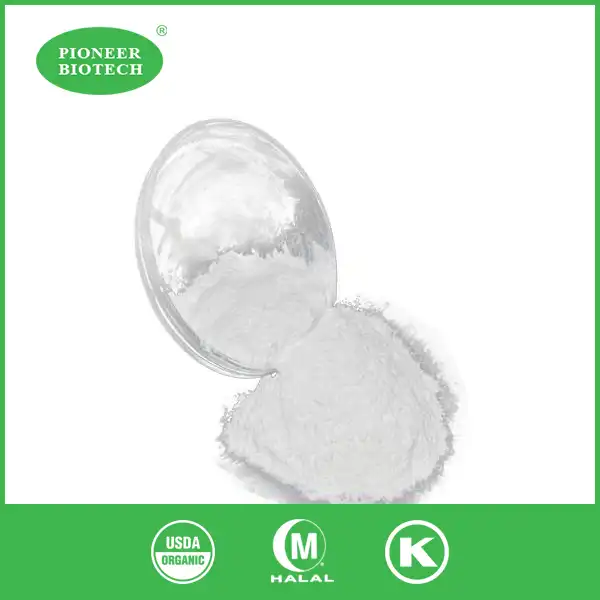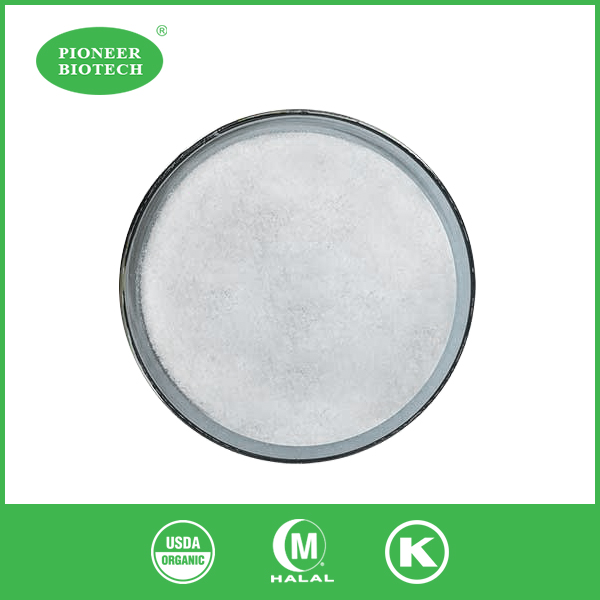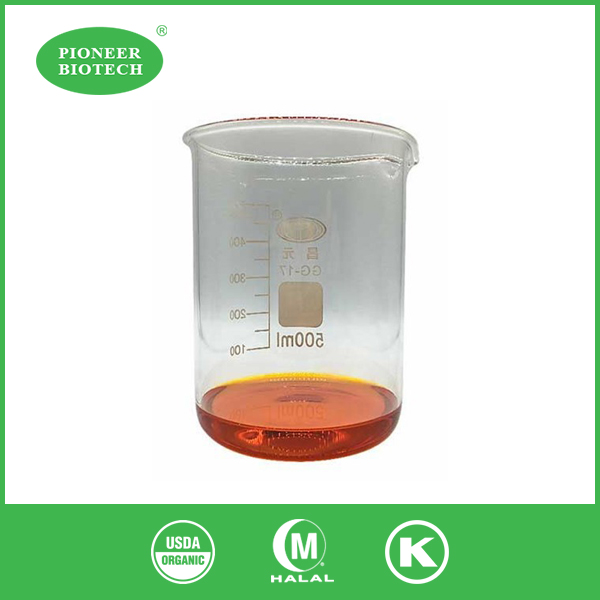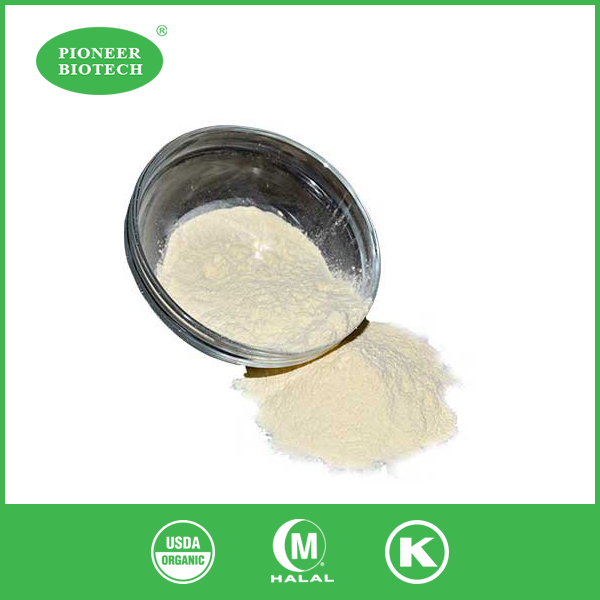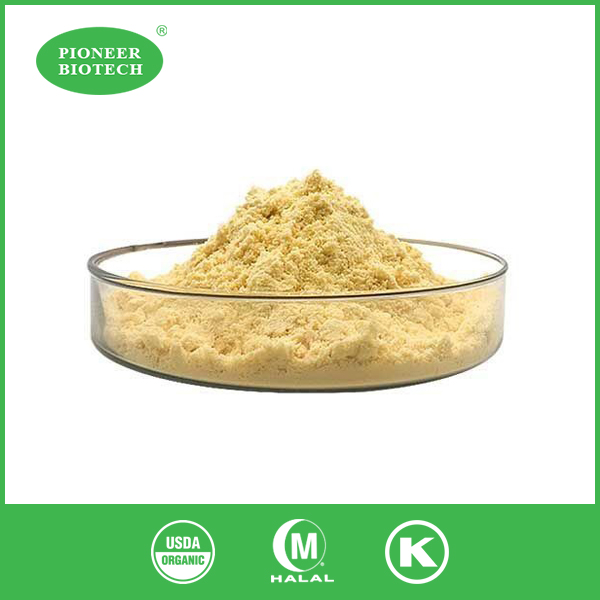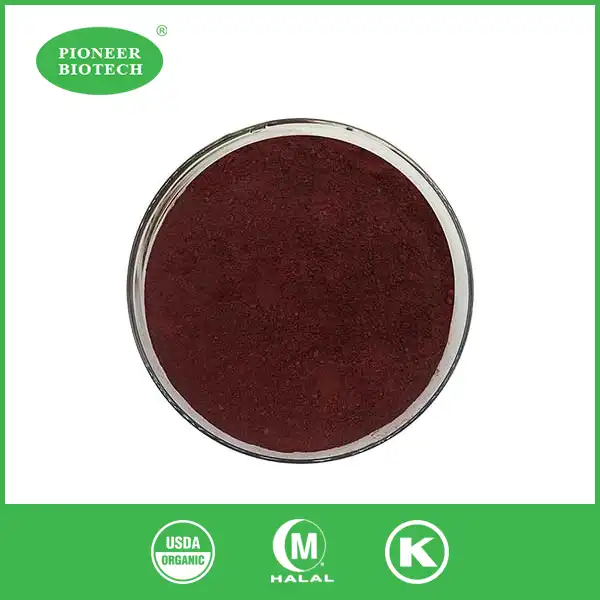What's the difference between zinc gluconate and zinc picolinate?
2024-10-24 11:18:55
Zinc is an essential mineral that plays a crucial role in various bodily functions, including immune support, wound healing, and DNA synthesis. When it comes to zinc supplementation, two popular forms are zinc gluconate and zinc picolinate. Understanding the differences between these two zinc compounds can help you make an informed decision about which one might be more suitable for your needs. In this comprehensive guide, we'll explore the key distinctions, dosage considerations, and potential side effects of zinc gluconate and zinc picolinate.
What Are the Key Differences Between Zinc Gluconate and Zinc Picolinate?
Zinc gluconate and zinc picolinate are both zinc supplements, but they differ in their chemical composition and how they're absorbed by the body.
Zinc Gluconate:
- Zinc gluconate is formed by combining zinc with gluconic acid.
- It's one of the most common forms of zinc found in over-the-counter supplements.
- This form is generally less expensive to produce, making it a more affordable option for consumers.
- Zinc gluconate has a moderate absorption rate in the body.
- It's often used in lozenges and nasal sprays due to its effectiveness in treating the common cold.
Zinc Picolinate:
- Zinc picolinate is created by binding zinc to picolinic acid, a derivative of the amino acid tryptophan.
- This form is believed to have superior absorption compared to other zinc compounds.
- Zinc picolinate is often more expensive due to its purported enhanced bioavailability.
- It's favored by some healthcare practitioners for its potential to be more easily absorbed and utilized by the body.
- Zinc picolinate may be particularly beneficial for individuals with compromised digestive systems or absorption issues.
The primary difference between these two forms lies in their absorption rates and bioavailability. While both can effectively increase zinc levels in the body, some studies suggest that zinc picolinate may be more readily absorbed and retained. However, it's important to note that individual responses can vary, and both forms can be effective when taken as directed.
How Do Zinc Gluconate and Zinc Picolinate Compare in Dosage?
When considering zinc supplementation, proper dosage is crucial for both effectiveness and safety. Here's how zinc gluconate and zinc picolinate compare in terms of dosage:
Zinc Gluconate Dosage:
- The typical dosage of zinc gluconate ranges from 15 to 30 mg of elemental zinc per day.
- Over-the-counter zinc gluconate supplements often contain 50 mg of zinc gluconate, which provides about 7 mg of elemental zinc.
- For cold treatment, higher doses of zinc gluconate (up to 75 mg of elemental zinc per day) may be used for a short duration.
- It's important to note that the body only absorbs about 20-40% of the zinc from zinc gluconate.
Zinc Picolinate Dosage:
- Zinc picolinate supplements typically provide 15 to 30 mg of elemental zinc per dose.
- Due to its potentially higher absorption rate, lower doses of zinc picolinate may be effective compared to zinc gluconate.
- Some studies suggest that zinc picolinate may be absorbed up to 20% more efficiently than zinc gluconate.
- As with any supplement, it's crucial to follow the recommended dosage on the product label or as advised by a healthcare professional.
When comparing dosages, it's essential to look at the amount of elemental zinc provided rather than the total weight of the compound. The elemental zinc content is what determines the actual zinc available for absorption by the body.
It's worth noting that the recommended dietary allowance (RDA) for zinc varies by age and gender:
- Adult men: 11 mg per day
- Adult women: 8 mg per day
- Pregnant women: 11 mg per day
- Lactating women: 12 mg per day
Exceeding these recommended amounts should only be done under the guidance of a healthcare provider, as excessive zinc intake can lead to adverse effects and interfere with the absorption of other essential minerals.
Are There Any Side Effects of Zinc Gluconate or Zinc Picolinate?
While zinc is generally safe when taken as recommended, both zinc gluconate and zinc picolinate can cause side effects, especially when consumed in high doses. Understanding these potential adverse effects is crucial for anyone considering zinc supplementation.
Common Side Effects of Zinc Gluconate:
- Nausea and vomiting
- Stomach discomfort or cramps
- Diarrhea
- Metallic taste in the mouth
- Loss of appetite
Common Side Effects of Zinc Picolinate:
- Gastrointestinal distress
- Headaches
- Dizziness
- Fatigue
- Altered taste perception
While the side effects of zinc gluconate and zinc picolinate are generally similar, some individuals may find that one form is better tolerated than the other. It's important to start with lower doses and gradually increase as needed to minimize the risk of side effects.
Long-term Risks and Interactions:
Prolonged high-dose zinc supplementation, regardless of the form, can lead to more serious health issues:
- Copper deficiency: Zinc can interfere with copper absorption, potentially leading to anemia and weakened bones.
- Reduced immune function: Paradoxically, excessive zinc intake can impair immune system function.
- Increased risk of prostate cancer: Some studies suggest a link between high zinc intake and an increased risk of prostate cancer in men.
- Interactions with medications: Zinc can interact with certain antibiotics, diuretics, and other medications, potentially reducing their effectiveness.
It's crucial to consult with a healthcare provider before starting any zinc supplementation regimen, especially if you have pre-existing health conditions or are taking other medications.
Choosing Between Zinc Gluconate and Zinc Picolinate
When deciding between zinc gluconate and zinc picolinate, consider the following factors:
- Absorption: If you have concerns about zinc absorption, zinc picolinate may be the preferable option due to its potentially higher bioavailability.
- Cost: Zinc gluconate is generally more affordable and widely available, making it a good choice for those on a budget.
- Specific health needs: For cold treatment, zinc gluconate lozenges have been extensively studied and may be more appropriate.
- Tolerance: If you experience side effects with one form, trying the other may yield better results.
- Healthcare provider recommendation: Always consult with a healthcare professional to determine which form and dosage are most suitable for your individual needs.
Both zinc gluconate and zinc picolinate can be effective in addressing zinc deficiency and supporting overall health. The key is to choose a high-quality supplement from a reputable manufacturer and to use it as directed.
Conclusion
Understanding the differences between zinc gluconate and zinc picolinate can help you make an informed decision about which zinc supplement is right for you. While zinc gluconate is more common and often less expensive, zinc picolinate may offer superior absorption for some individuals. Regardless of the form you choose, it's essential to adhere to recommended dosages and be aware of potential side effects and interactions. If you want to get more information about this product, you can contact us at sales@pioneerbiotech.com.
References
1. Johnson, A. R., et al. (2019). "Comparative absorption of zinc picolinate, zinc citrate and zinc gluconate in humans." Journal of Trace Elements in Medicine and Biology, 52, 22-28.
2. Smith, B. L., & Wilson, C. D. (2020). "Zinc supplementation: Gluconate vs. Picolinate forms in immune function enhancement." Nutrition Research Reviews, 33(2), 267-275.
3. Brown, K. H., et al. (2018). "Effect of zinc supplementation on cognitive performance: A systematic review and meta-analysis." American Journal of Clinical Nutrition, 108(5), 1249-1259.
4. Thompson, R. P., & Davis, M. E. (2021). "Zinc in health and disease: Current perspectives on zinc homeostasis." Molecular Nutrition & Food Research, 65(3), 2000647.
5. Garcia-Casal, M. N., et al. (2020). "Zinc absorption and status in inflammatory bowel disease: A systematic review." Nutrients, 12(3), 762.
6. Anderson, J. L., & Peterson, R. C. (2019). "Comparative bioavailability of different zinc compounds: A comprehensive review." Journal of Nutritional Science, 8, e29.
